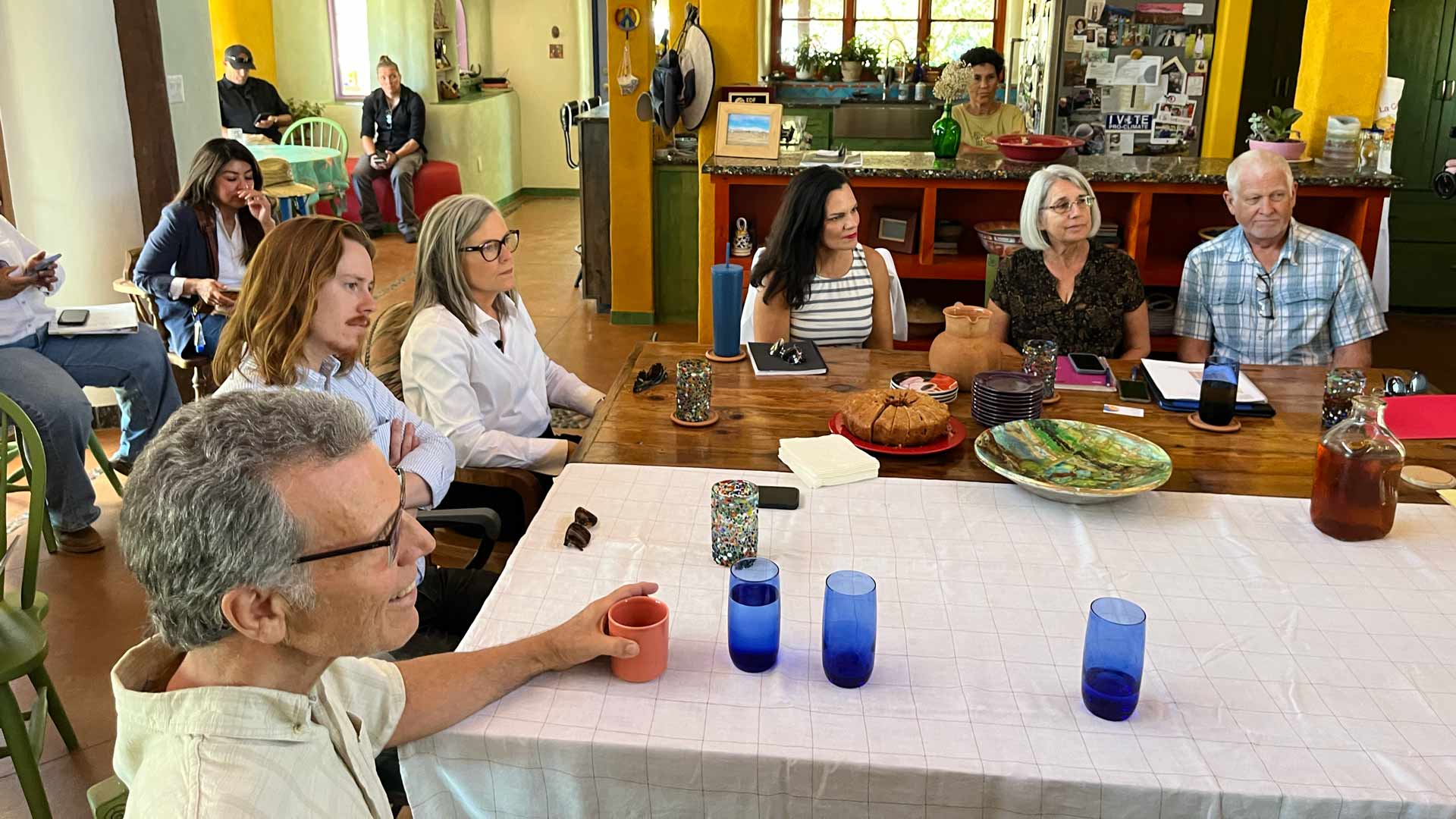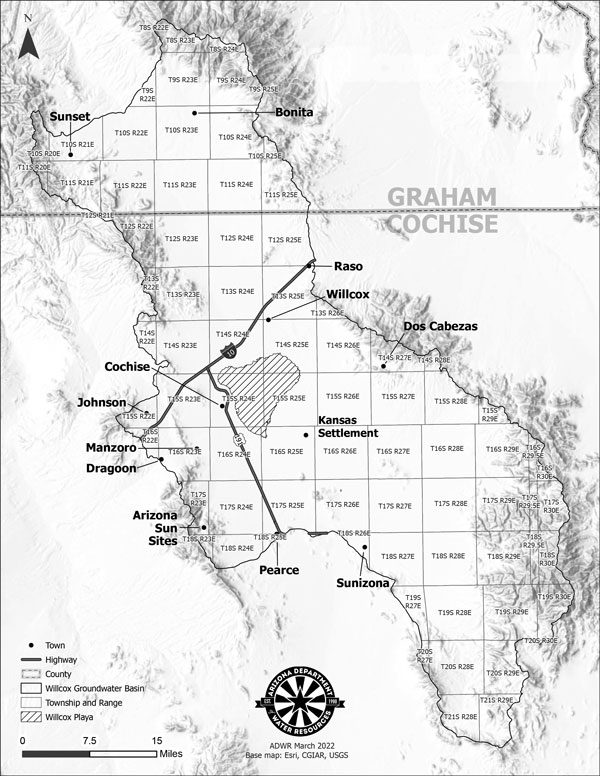 Governor Katie Hobbs and her staff meet with farmers and homeowners near Willcox, AZ to discuss falling water levels in the aquifer. September 5, 2024
Governor Katie Hobbs and her staff meet with farmers and homeowners near Willcox, AZ to discuss falling water levels in the aquifer. September 5, 2024
Bipartisan lawmakers introduced legislation that could reduce groundwater use while offering an alternative to Active Management Areas (AMAs) and Irrigation Non-Expansion Areas (INAs).
At a press conference on Thursday, Governor Katies Hobbs presented the Rural Groundwater Management Act (RGMA) designed to give rural Arizonans an opportunity to voice their concerns and develop local solutions.
The RGMA aims to protect rural farmers from out-of-state corporations tapping into the state’s most precious resource, according to the Governor’s Office.
The bill’s primary-sponsor, Democratic Sen. Priya Sundarashen (LD-18), called it a starting point for rural groundwater negotiations.
“We do want to make sure that what gets passed is based in science, based in the data,” Sundarashen said.
If passed, the legislation would immediately protect areas experiencing severe groundwater decline for five initial basin areas: Gila Bend Basin, Hualapai Valley Basin, Ranegras Plain Basin and San Simon Sub-basin.
The recently designated Willcox AMA could also be converted into an RGMA, offering more flexible management.
 VIEW LARGER The Willcox Basin
VIEW LARGER The Willcox Basin Willcox Mayor Greg Hancock supports what he calls stronger regulations.
“It provides [a] foundation to build upon, allowing us to reach a compromise and move forward with future water legislation hopefully in 2025. Rural Arizona offers a unique cherished way of life, however its future depends on reliable water access,” Hancock said.
The bill is co-sponsored by Democratic Rep. Chrisopher Mathis (LD-18), who emphasized that the legislation is about local control.
“It includes a straightforward framework and key guard rails to ensure that meaningful reductions in groundwater levels declines are achieved,” Mathis said.
Democratic Sen. Rosanna Gabaldon (LD-21) is also a co-sponsor.
The bill was drafted based on a framework developed by the Governor’s Water Policy Council.
If passed, the bill would establish a five-person Council appointed by the Governor, with decision-making authority to set conservation targets for their communities.
The Senate President, House Speaker and minority leaders in both chambers would select four members.
The Council could adjust conservation programs every 10 years evolving water management needs.
Along with flexibility, the Governor’s Office says the legislation provides certainty for existing water users with Certificates of Groundwater Use, which formalize their water access, quantify usage, and support economic growth in rural areas.
A dedicated fund would be created to support voluntary conservation efforts, aquifer recharge and water reuse programs in rural Arizona, with initial seed funding determined through legislative appropriation.
Other rural groundwater basins could be designated as RGMAs if requested by basin voters, the County Board of Supervisors or initiated by the Arizona Department of Water Resources (ADWR)-- provided the basin meets the scientific criteria demonstrating a need for groundwater management.

By submitting your comments, you hereby give AZPM the right to post your comments and potentially use them in any other form of media operated by this institution.